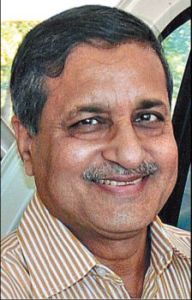(News) UPSC: Hints of change
UPSC: Hints of change
A reformatting of the civil services examination will hopefully increase transparency in the evaluation process.
AFTER years of dithering, the Government of India has finally agreed to change the format of the Union Public Service Commission (UPSC) civil services examination. The present format had come under severe criticism from both members of the public as well as from parliamentary committees, and there had been tremendous pressure on the government to review it. Its shortcomings, which have come to light following queries made under the Right to Information (RTI) Act, warranted urgent action.

To begin with, the Preliminary examination, which consists of general studies and optional papers, may be replaced with an aptitude test, to be called the Civil Services Aptitude Test. The test will comprise two objective-type papers, which will be common for all candidates appearing for the examination. A proposal to this effect has received the Union government’s approval.
Confirming this, Shantanu Consul, Secretary, Department of Personnel, Government of India, told this correspondent that the proposed changes would come into effect next year as the notification for this year’s examination had already come out. Refusing to disclose any other details about the new format, he said it was the prerogative of the UPSC, which conducted the examination, to notify the changes.
A senior UPSC official said that “some letter from the government regarding proposed changes in the system of civil services examination had indeed been received, but the exact nature of the changes approved cannot be disclosed yet”. But going by the speech of the UPSC Chairman, Prof. D.P. Agrawal, on the occasion of UPSC Foundation Day celebrations last year, there will be a change in the Preliminary examination format, a review of the contents of the Main examination by an expert committee, a lowering of the age limit for entry into the services, and a reduction in the number of attempts.
In his speech, Agrawal said that the UPSC had been endeavouring to develop a recruitment system that tested the aptitude and competency of candidates for an increasingly specialised public administration while ensuring social justice and adequate representation for all sections so that the government became more inclusive and participatory.

In this connection, he said: “One of the recommendations made by the Commission to the government is that a Civil Services Aptitude Test replace the existing Civil Services (Preliminary) Examination. The proposal is to have two objective-type papers that are common to all candidates.”
Explaining why this was needed, he said: “The emphasis is on testing the aptitude of the candidate for the demanding life in the civil services as well as on ethical and moral dimensions of decision-making. The proposed scheme will also provide a level playing field and equity since all candidates will have to attempt common papers.” He said the Commission wanted the Main examination to remain the same until an expert committee appointed by the Commission went into various aspects of it.
Regarding the lowering of the age limit for entry into the civil services, he said it was desirable but cautioned that such a decision could affect the interests of rural candidates, who often complete their graduation later than their urban counterparts.
Besides, he said, the number of attempts – four at present – should be reduced. “A reduction in the number of attempts allowed at the examination is, however, called for so as to remove the premium on cramming and memorisation that a large number of attempts provides.”
He said a natural corollary of these proposed modifications was the need to ensure that the performance of the officers selected through the examination was tracked, particularly during the initial years.
Other than direct recruitment, another mode of entry into the civil services is by promotion from State services. At present, this is done on the basis of annual confidential reports prepared through selection committee meetings. The Commission proposes to make changes in the promotion quota by introducing a three-tier recruitment process that involves a limited competitive examination, interview and assessment of service record. “This would have the salutary effect of encouraging competition and privileging merit. The States will also benefit from the scheme. Such a system could, in time, be extended to promotions within the Central services as well,” the Chai rman said.
Read mrore..
Courtesy: The Hindu


Comments
Now what to do??
About UPSC 2011